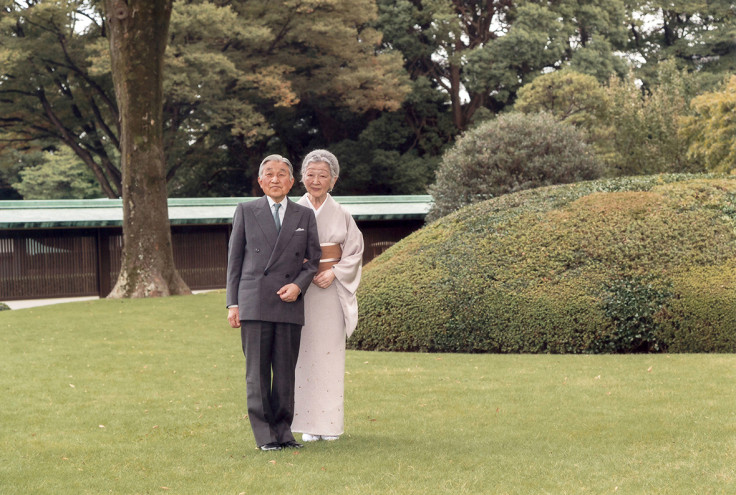Japanese government taking legal steps to allow Emperor Akihito to abdicate – report
The government could submit a special law that would allow Akihito to abdicate by end-2018.

The Japanese government is reportedly planning to take legal steps which would allow Emperor Akihito to abdicate by the end of 2018 while setting the stage for Crown Prince Naruhito to ascend to the throne on 1 January 2019.
According to local media, a panel had started discussing the possible abdication late last year after Akihito hinted that he wanted to abdicate. In August, the 83-year-old Emperor indicated that he feared his age could make it difficult for him to carry out his duties.
However, as abdication is not permitted under Japanese laws, the government could submit a special law that would allow Akihito to abdicate by end-2018.
Meanwhile, Chief Cabinet Secretary Yoshihide Suga said on 11 January that he was not aware of any developments and said that discussions were still ongoing.
"The experts are prioritising lightening the Emperor's burden in their discussions and things are still at a stage where no direction has emerged," he said.
According to opinion polls, a majority of Japanese citizens are in favour of allowing the abdication.
In the last two centuries, no Japanese emperor has abdicated. They have no political power, but are considered a symbol of the state.
Akihito, who has been treated for prostate cancer and has undergone heart surgery, said in August 2016 that he would complete 30 years on the throne in 2018. He ascended to the throne in 1989 after the death of his father, Hirohito.
© Copyright IBTimes 2025. All rights reserved.





















